Navigating the complex world of business ethics is crucial for managers and leaders, especially in today’s digital landscape. LinkedIn has emerged as a powerful platform not just for networking but also for understanding the ethical standards that shape our professional lives. I’ve found that keeping an eye on the conversations around business ethics on LinkedIn can provide valuable insights into best practices and emerging trends.
As leaders, we’re often faced with tough decisions that test our moral compass. By engaging with thought leaders and industry experts on LinkedIn, we can sharpen our ethical decision-making skills and foster a culture of integrity within our organizations. Let’s dive into how we can leverage LinkedIn to enhance our understanding of business ethics and lead with confidence.
Key Takeaways
- Understanding Business Ethics: Key components include integrity, fairness, respect, and responsibility, which guide managers and leaders in ethical decision-making.
- Importance for Managers: Business ethics ensure long-term success and integrity, guiding managers through complex decisions while positively impacting organizational culture.
- Ethical Leadership: Leaders who model ethical behavior set a standard for teamwork and collaboration, leading to higher employee engagement and retention.
- Corporate Social Responsibility (CSR): Integrating CSR into business strategies demonstrates accountability and enhances a company’s reputation and customer loyalty.
- Practical Application: Utilize case studies like Johnson & Johnson and Starbucks to illustrate the impact of ethical practices and foster a solid ethical framework within organizations.
- Continuous Learning: Engage in ongoing education and encourage open communication to reinforce ethical standards and decision-making in the workplace.
Watch LinkedIn Business Ethics for Managers and Leaders
Business ethics refers to the principles and standards guiding behavior in the business world. Ethical practices establish the foundation for decision-making, influencing a company’s reputation and trustworthiness. I recognize four key components of business ethics:
- Integrity: Upholding honesty and strong moral principles in all business dealings ensures transparency and accountability. Integrity fosters trust among employees, clients, and stakeholders.
- Fairness: Treating all parties equitably, including customers, suppliers, and employees, promotes a culture of respect and cooperation. Fairness enhances relationships and encourages collaboration within the organization.
- Respect: Valuing diverse perspectives and treating individuals with dignity strengthens workplace morale and cohesion. Respect creates an inclusive environment where everyone feels valued and heard.
- Responsibility: Managers and leaders must take accountability for their actions and decisions. Demonstrating responsibility encourages ethical behavior across the organization and instills a sense of duty toward stakeholders and the community.
Understanding these components aids managers and leaders in navigating ethical dilemmas and fostering a positive organizational culture. In a digital landscape, keeping informed on ethical practices and engaging with relevant content on platforms like LinkedIn empowers leaders to make informed decisions and drive ethical standards within their organizations.
Importance of Business Ethics for Managers
Business ethics play a crucial role in guiding managers and leaders as they navigate the complexities of today’s business environment. Understanding the implications of ethical decision-making and its impact on organizational culture ensures long-term success and integrity within organizations.
Ethical Decision Making
Ethical decision-making relies on the principles that guide managers in assessing their choices. I prioritize a systematic approach that includes evaluating the potential outcomes, considering stakeholders’ interests, and upholding the core components of business ethics—integrity, fairness, respect, and responsibility. Utilizing frameworks like the Ethical Decision-Making Model enhances my ability to tackle dilemmas effectively. This model facilitates identifying relevant facts, recognizing ethical issues, exploring alternatives, and making informed choices. Engaging with content on platforms like LinkedIn fosters a deeper understanding of best practices in ethical decision-making, enabling me to build confidence and credibility within my organization.
Impact on Organizational Culture
Organizational culture thrives on the principles that managers promote. I strive to embody ethical values consistently, influencing team members to do the same. When leaders demonstrate commitment to ethics, it creates an environment of trust and transparency. This culture encourages open communication, which fosters collaboration and innovation. Research shows that organizations with strong ethical cultures experience higher employee satisfaction and lower turnover rates. By emphasizing ethics in the workplace, I contribute to a sustainable culture that aligns with organizational goals and cultivates a workforce committed to ethical standards.
Key Concepts from Watch LinkedIn Business Ethics
Understanding key concepts in watch linkedin business ethics for managers and leaders enhances my ability to lead effectively in today’s corporate landscape. The following subheadings highlight essential elements that every manager and leader should consider.
Ethical Leadership
Ethical leadership is fundamental in shaping organizational culture. Leaders must model ethical behavior, which sets a standard that influences team dynamics and performance. By demonstrating integrity, fairness, and respect, I can create a foundation of trust within my team. This trust fosters open dialogue, encourages collaboration, and drives innovation. Research shows that ethical leaders contribute to higher employee engagement and retention rates, as team members feel valued and secure. Engaging with industry leaders on LinkedIn provides insights into best practices for ethical leadership, allowing me to refine my approach continuously.
Corporate Social Responsibility
Corporate social responsibility (CSR) underlines the importance of businesses acting in the best interests of society. CSR initiatives show a company’s commitment to ethical practices beyond profit-making. Managers play a pivotal role in integrating CSR into organizational strategies. Initiatives can range from sustainability efforts to community engagement. By prioritizing CSR, I demonstrate accountability and responsiveness to stakeholder needs. LinkedIn serves as a platform for sharing CSR success stories, which can inspire others and enhance my organization’s reputation. Studies indicate that companies invested in CSR enjoy greater customer loyalty and enhanced brand image, reinforcing the business case for ethical practices.
Practical Applications for Managers and Leaders
Managers and leaders can effectively apply business ethics through various real-world examples and strategic implementation methods. Engaging with these practices builds a foundation for ethical decision-making and fosters a robust organizational culture.
Case Studies and Examples
- Johnson & Johnson’s Credo
Johnson & Johnson emphasizes its Credo, a set of guiding principles prioritizing customer welfare, employee rights, and community responsibilities. This philosophy guided the company’s response during the Tylenol crisis in 1982, where they swiftly removed products from shelves to protect consumers. This decisive action solidified their reputation for integrity. - Starbucks’ Commitment to Sustainability
Starbucks has integrated ethical sourcing into its operations by promoting Fair Trade coffee and investing in sustainable agricultural practices. This commitment not only enhances their brand loyalty among customers but also demonstrates corporate social responsibility, showcasing the importance of ethical decisions in business growth. - Unilever’s Sustainable Living Plan
Unilever’s Sustainable Living Plan focuses on reducing environmental impact while increasing social impact. By setting measurable goals for sustainability and transparency, Unilever exemplifies how ethical business practices can align with long-term profitability. This approach attracts environmentally conscious consumers and engenders employee pride.
- Engaging in Continuous Education
Participate in workshops and training sessions that focus on ethical leadership and decision-making. Regular education reinforces ethical standards and practices within the organization. - Creating an Ethical Framework
Develop a written code of ethics that outlines organizational values, responsibilities, and behaviors expected from employees. This creates a clear reference for ethical dilemmas. - Fostering Open Communication
Encourage team members to share ethical concerns without fear of retribution. Establishing whistleblower protections can enhance transparency and trust within the organization. - Promoting Accountability
Implement systems to hold all employees accountable for ethical behavior, including performance reviews that assess ethical decision-making. This fosters a culture where ethics are prioritized alongside business objectives. - Utilizing Technology
Leverage tools such as ethics hotlines and compliance software to streamline reporting and tracking of ethical concerns. This can enhance organizational responsiveness to potential ethical issues.
By applying these practical strategies and learning from notable case studies, managers and leaders can effectively navigate the complexities of business ethics in their organizations.
Effective Leadership
Watch linkedin business ethics for managers and leaders is essential for effective leadership in today’s digital age. By leveraging LinkedIn to engage with thought leaders and stay updated on best practices, I can enhance my ethical decision-making skills.
Embracing the core components of integrity, fairness, respect, and responsibility not only guides my actions but also fosters a culture of trust within my organization.
As I prioritize ethical leadership and corporate social responsibility, I can drive positive change and inspire my team to uphold high ethical standards. By remaining committed to continuous learning and open communication, I’ll create an environment where ethical practices thrive and contribute to long-term success.



![[author] business ethics for managers and leaders course](https://westbrightlaw.com/wp-content/uploads/2024/11/43692c61-2758-4ecf-870e-67b6beea24b5_y91iE6L8oWa_1dxBEeN2l-1024x585.jpeg)